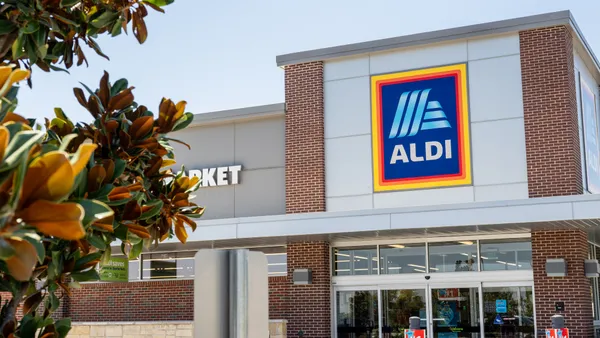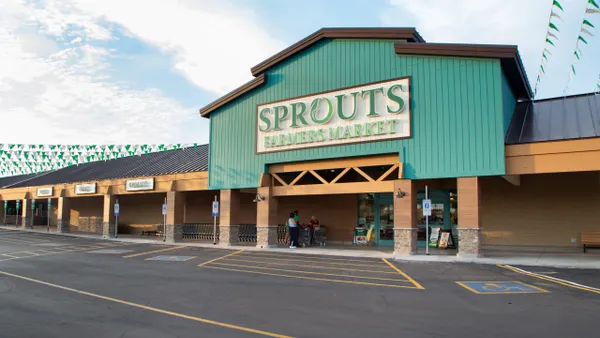Dive Brief:
- Ahold Delhaize plans to cut carbon emissions by 50% from its stores, distribution centers, operations and offices by 2030, according to a company press release.
- As part of the initiative, Ahold Delhaize said it would partner with its suppliers to reduce their emissions by 15% by 2030 through efforts like increasing their low-carbon product assortment and reducing packaging waste.
- Last week, the grocery company also announced new sustainability policies for genetically modified food and farm animal welfare. This includes a new labeling requirement for private brand products indicating if they’re bioengineered and a set of standards for suppliers that ensures animals are not abused.
Dive Insight:
Ahold Delhaize has been tracking significant progress on sustainability initiatives for the past several years, and as it moves through 2020 it has set its sights on new goals.
Earlier this year, Ahold Delhaize renewed its sustainability targets as it met many of its 2020 goals. Its commitments include cutting food waste in half by 2030, increasing sales of healthy private label products and aiming for zero plastic waste in its private label packaging.
Now, the retailer is adding carbon emissions, animal welfare and GMOs to the list. In a statement, CEO Frans Muller noted the importance of cutting carbon emissions to help mitigate climate change, which affects how food is grown and how business is conducted.
When it comes to new efforts on animal welfare and GMOs, Ahold Delhaize also sees its efforts as an important component of sustainability. Customers who buy private label and local brands from Ahold Delhaize banners have choices that are non-GMO certified, and the retailer said it’s committed to monitoring science and assessing risk around GMOs.
With its animal welfare policy, Ahold Delhaize is supporting “five freedoms,” which are globally recognized principles of animal welfare. It also addresses animal testing, growth hormones and other key issues related to animal welfare.
Recent research shows customers care about these issues. A report from consulting firm Kearney recently found 83% of people consider the environment when making a purchase, showing that sustainability still matters even during a global pandemic. Additionally, animal welfare can directly influence whether or not a customer buys a product, according to an article in the academic journal Animals.
Prior to these announcements, Ahold Delhaize has also been focused on cleaning up its private label products and reducing chemicals of concern. The grocer has also been making investments in renewable energy, energy efficiency and sustainability bonds.









